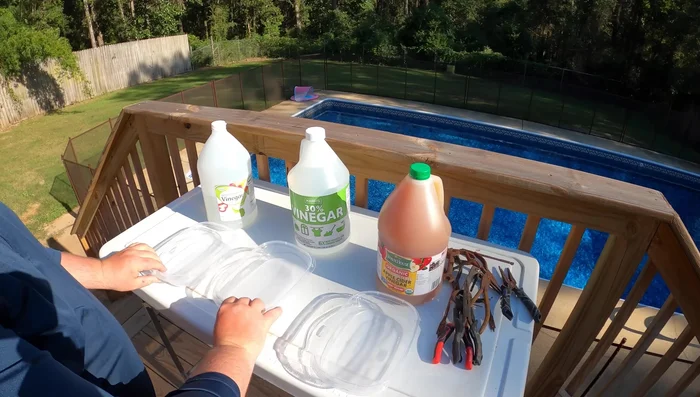Rust. That insidious orange scourge that plagues everything from antique tools to modern machinery. While various commercial rust removers exist, often at significant cost, effective alternatives can be found right in your pantry. This article pits three common household acids – apple cider vinegar, distilled white vinegar, and industrial-strength vinegar – against each other in a head-to-head rust removal showdown. We'll explore their effectiveness, ease of use, and potential drawbacks, helping you choose the best option for your specific needs.
This comparative analysis will equip you with the knowledge to tackle even the most stubborn rust. Discover which vinegar reigns supreme in this battle against corrosion by following our detailed, step-by-step instructions and observing the results of each vinegar type's corrosive power against various levels of rust. Prepare to be amazed by the surprisingly effective cleaning power these readily available ingredients possess.
Preparation and Safety Guidelines
- Apple cider vinegar
- Industrial strength vinegar (30%)
- Distilled white vinegar
- Tupperware containers
- Pliers
- Tools
- Rag
- Bristle brush
- Wire brush
- Always wear gloves and eye protection when working with any type of vinegar, as it can irritate skin and eyes.
- Test the vinegar solution on an inconspicuous area of the metal first to ensure it doesn't damage the finish or cause discoloration. Start with a small amount and let it sit for a short period.
- Proper ventilation is crucial. Vinegar produces fumes, especially when heated or used in large quantities. Work in a well-ventilated area or outdoors.
Step-by-Step Instructions
Preparation
- three types of vinegar, containers, rusty tools, a rag, a bristle brush, and a wire brush.
Soaking
- Place rusty tools in separate containers, each filled with a different type of vinegar.
- Let the tools soak in vinegar for 24 hours (21 hours in this video due to weather).


Soaking Rust Removal - Rag
- After soaking, use a rag to wipe off loose rust.

Rust Removal - Rag Rust Removal - Bristle Brush
- Use a bristle brush to scrub remaining rust.

Rust Removal - Bristle Brush Rust Removal - Wire Brush
- Finally, use a wire brush to remove any stubborn rust.


Rust Removal - Wire Brush
Read more: How to Clean and Maintain Your Tsunami 7.5 Inch Aluminum Pliers
Tips
- The smell of 30% industrial vinegar is very strong.
- Industrial vinegar is more expensive and dangerous to handle; keep it out of reach of children and pets.





